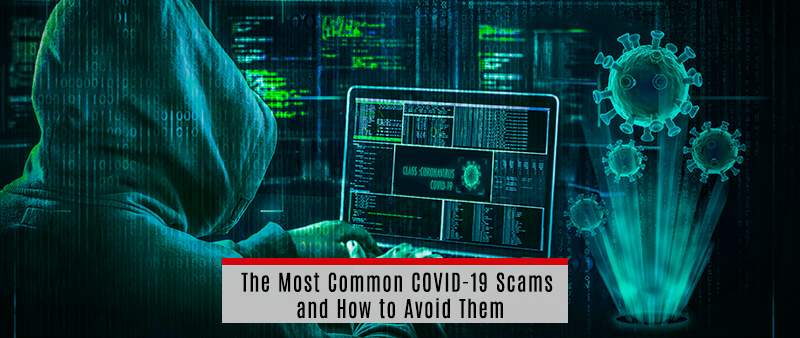
Scammers and fraudsters have existed for a long time with the intent to harm unsuspecting people. During unprecedented times when people are vulnerable, such as when a natural disaster hits or a financial recession, there may be a higher chance of experiencing such scams and fraudulent activity. Right now, scammers are taking advantage of the coronavirus outbreak to create scams that are related to the pandemic.
Here are some of the most common scams we’ve seen, and what you should do if you experience one:
- An influx of robocalls: Many people have received phone calls from scammers promoting fake testing kits, cures, or vaccines, or promoting fake “treatment” for the virus. Due to privacy laws, legitimate and licensed medical professionals can’t make these kinds of calls; not only that, but scientists and doctors have said repeatedly that it may take more than a year to develop a safe vaccine. To avoid falling victim to this scam, avoid answering phone calls from unrecognized or blocked numbers, and fact check any information you might find through reputable sources such as WHO or the CDC.
- Fake charities: This scam is designed to prey on emotions and vulnerability, as many people are donating to legitimate charities during this unprecedented time; this scam occurs more in cities, regions, and states that have experienced significant outbreaks. Scammers are calling and emailing people solely to solicit donations to nonexistent charities, with the intent to steal your money, personal information, and/or credit card information. As with robocalls, avoid answering any phone calls with an unrecognized or blocked number, and delete any emails that solicit donations (most email servers are good at recognizing spam mail). If you’re interested in making a charitable donation, make sure it’s through a secure website, and research the charity beforehand.
- Callers pretending to be medical professionals: Another example of a phone scam often used during a health crisis is callers who pretend to be doctors or hospitals, who claim to have treated one of your family members for coronavirus and require payment for their treatment or hospital stay. It’s easy to fall victim to this particular scam, as the cost of healthcare (including deductibles) can be difficult to understand if you’re not the patient. If you receive this kind of phone call, hang up immediately, and reach out to the family member or loved one, if the caller shares their name. Never give any personal information to these callers, and report them to law enforcement.